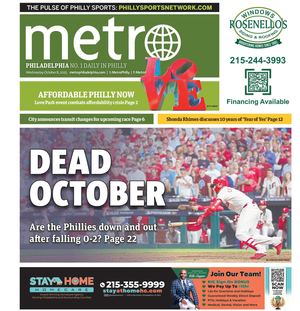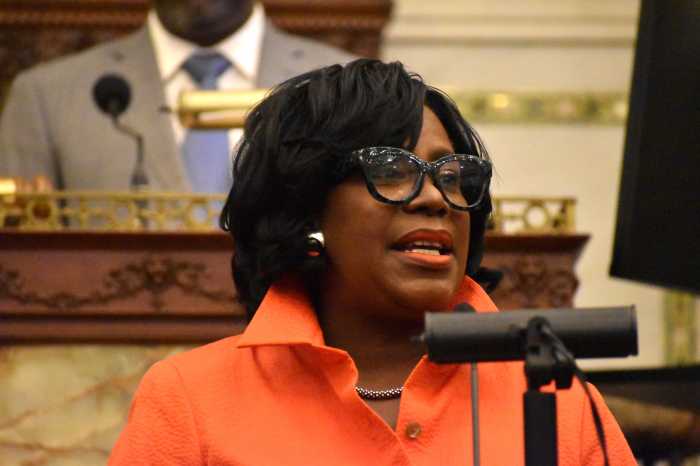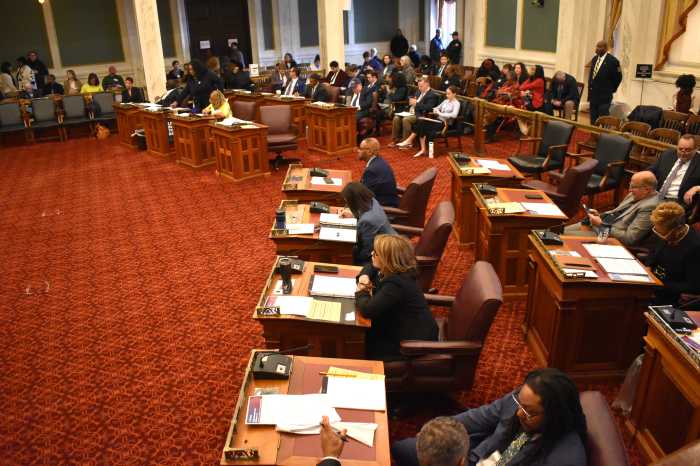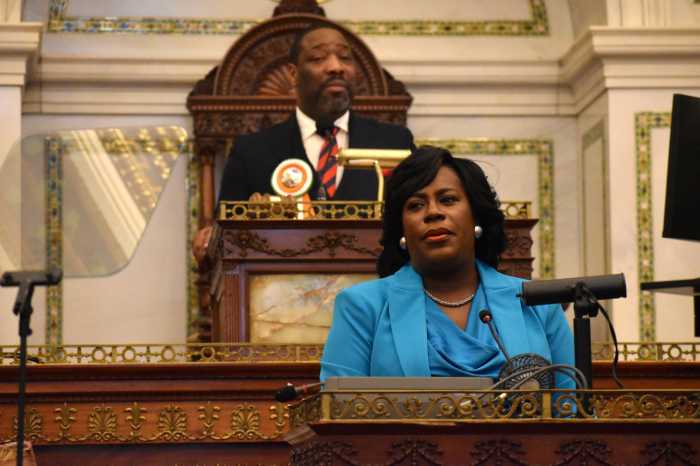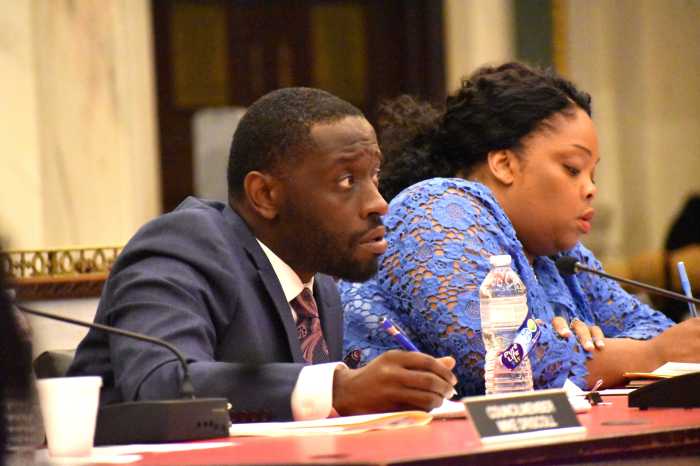Advocates say the use of a key federal housing metric is flawed, and they are pushing City Council to take action to make sure affordability initiatives are benefitting truly low-income residents.
The U.S. Department of Housing and Urban Development, along with many state and local government agencies, use Area Median Income, or AMI, to set income guidelines for affordable housing programs.
AMI is calculated based on a metropolitan region, and Philadelphia’s median is $114,400 a year. For city residents, the actual median is about $57,000, though the inclusion of suburban counties, particularly Montgomery, Chester and Bucks, inflates the number. Programs typically limit participants to making a percentage of AMI, ranging from 30% to 120%.
Too many housing benefits aimed at poorer residents are open to those with higher incomes, according to the Philadelphia Coalition for Affordable Communities, a group of more than 70 organizations which released a report on the issue last week.
Families and individuals earning more than $68,000 are eligible for a majority of the programs, and households earning more than six figures can qualify for some of the initiatives, PCAC’s analysis found.
More needs to be done, members of the group said, to make sure that funding is getting to the third of Philadelphia households who earn less than $30,000.
PCAC is asking Council to adopt legislation committing half of all money allocated toward housing for those at or below 25% of AMI, which is just over $28,000. Changing the formula would ensure those dollars help the poorest residents, including seniors and people with disabilities, coalition members said.
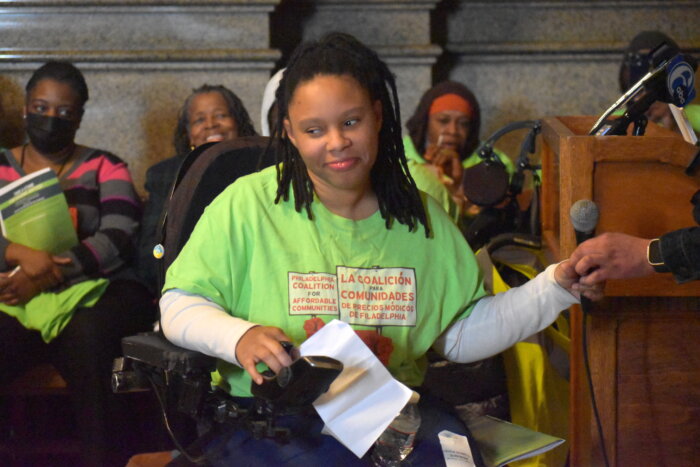
Half of all Philadelphia renters and a third of homeowners are cost-burdened, meaning they devote more than 30% of their income toward housing and utilities.
The issue, advocates said, disproportionately affects Black and brown residents. Rising housing costs have contributed to a 32% reduction in the Black population of North, West and South Philadelphia since 2000, according to the PCAC report.
Over the past two years, there have been less than 250 new affordable units created annually, and there is demand for at least 55,000 additional homes renting for less than $750 a month, the analysis says. That means there is a 220-year backlog, if development continues at the current rate, according to PCAC.
Representatives from the coalition gathered in lime green T-shirts inside Council’s caucus room for a news conference Thursday. In addition to the report, PCAC is launching its “Housing Justice Campaign” and pressuring lawmakers to support the AMI bill.
Jonny Rashid, a West Philadelphia-based pastor and member of the coalition’s steering committee, said PCAC is hoping to meet with every Council member about the legislation.
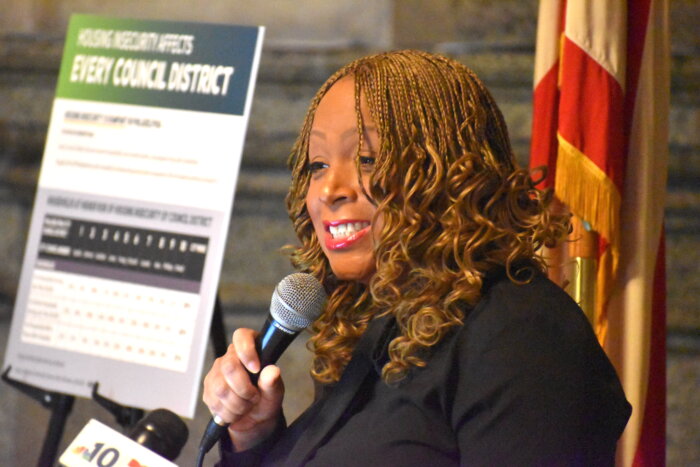
One member – Jamie Gauthier – attended and spoke at the campaign launch. She noted that 40% of the people who live in her West Philadelphia district earn less than $30,000.
Gauthier has said housing issues will be a priority for her this term, with a package of bills marketed under the ‘Defying Displacement’ banner. In her first term, she helped pass an inclusionary zoning law, which requires developers in certain zones to set aside 20% of units as affordable in projects with 10 or more units.
The policy, which has been implemented in other cities, has drawn scrutiny from developers, and no such units have received permits in Gauthier’s district since the law was implemented in 2022, according to a recent Inquirer editorial.
Gauthier told Metro that it is too soon to judge the zoning law and unfair to examine it outside of external forces impacting the housing market. There are also projects in the pipeline, she said.
“The reason why we developed MIN (Mixed Income Neighborhoods law) is that we were seeing virtually no affordable units being produced on the private market,” she said. “That’s a problem, and it’s a policy failure. That’s why we came up with this policy in the first place, because we cannot just sit by and look as our neighborhoods become unaffordable to the majority of Philadelphians.”
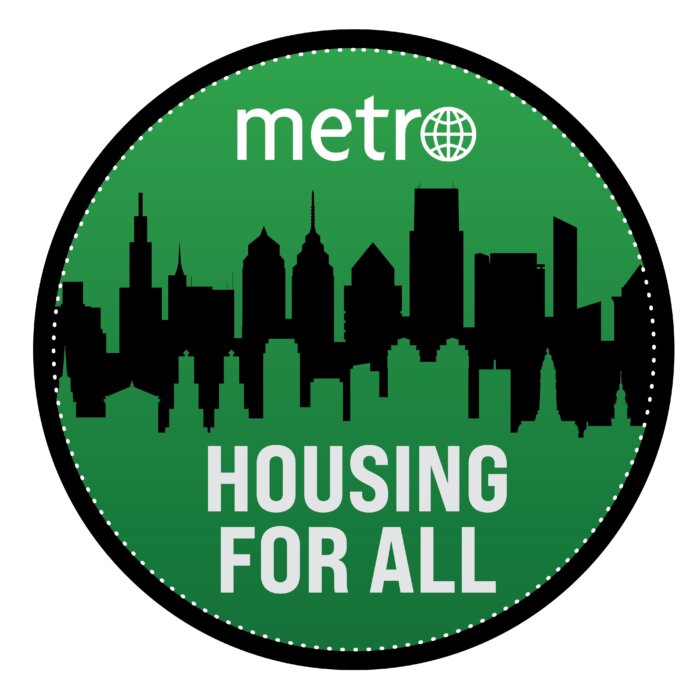
‘Housing For All’ is a two-year project in which Metro Philadelphia will investigate the city’s affordable housing crisis. It is made possible by The Lenfest Institute for Journalism’s Philadelphia Local News Sustainability Initiative grant.
